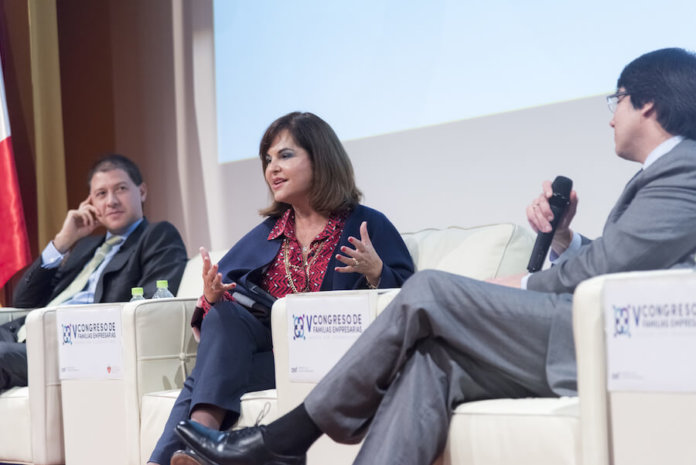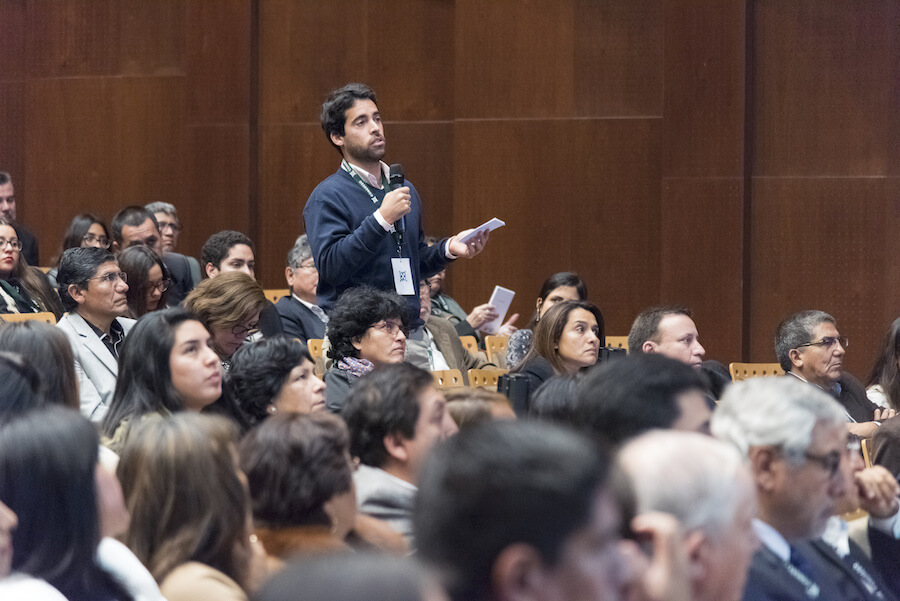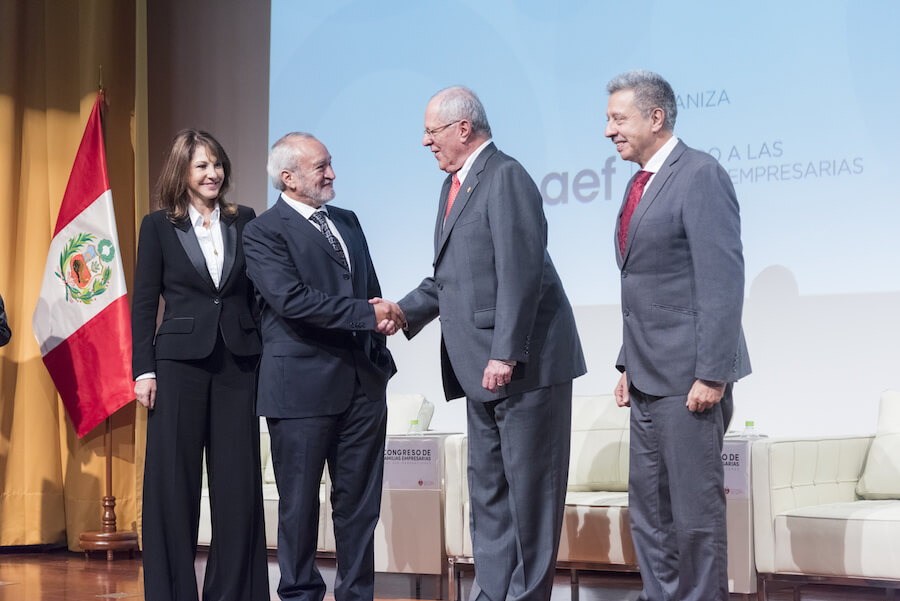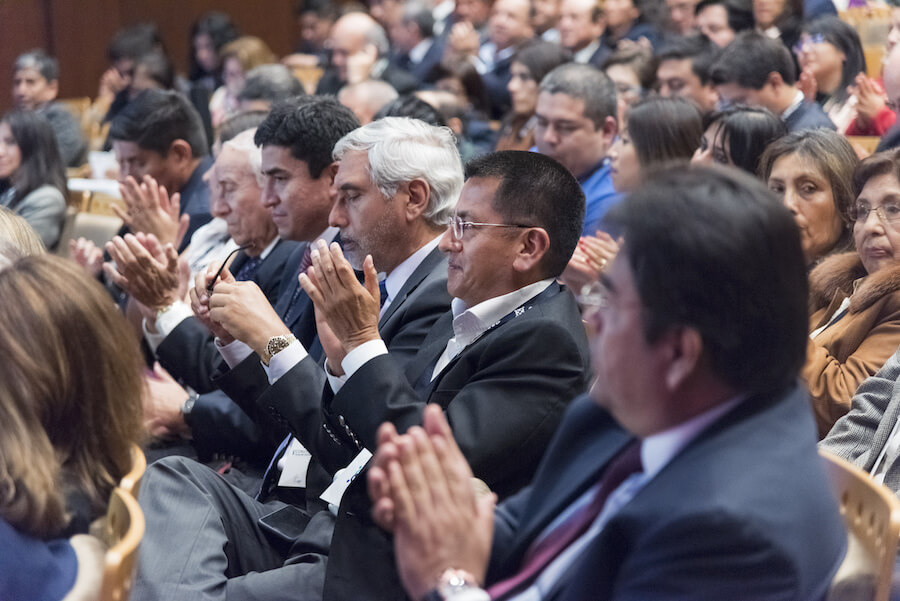
Only those who have been through it can possibly understand it.
Ask anyone who’s ever been involved in a family business, and they will tell you that truer words were never spoken. And it’s for this very reason, that the Association Of Family Businesses In Peru (AEF Peru) was created. Who better to guide and advise family businesses through the often choppy waters of succession, governance, and conflict resolution than peers who have been through it before you?
Founded in 2010, AEF Peru today consists of 70 family businesses with more than 400 members representing 300 companies. Their self-described mission is “improving the management of the businesses, the governance of their families, and consolidating the businesses for generations to come.
To this end, the AEF Peru, in partnership with the University of Lima, recently hosted The Congress of Family Business. The annual Congress is designed to “share knowledge and experiences of interest with local leaders and family entrepreneurs from micro, small and medium enterprises (MSME) of Peru.” This year’s offering saw keynote speakers and panelists focusing on two main topics: (1) succession in family businesses and (2) family conflict resolution.
Amongst the topics covered were “Next Gen and the Succession Process” which featured panelists such as: Eduardo Heinrich, General Manager of Heinrich Technik; Gonzalo Martínez, President Next Gen of FBN Chile and Yes Chile Group; Juan Andrés Arata, Lecturer at the Faculty of Business Sciences and Economics of the University of Lima, and Beatriz Boza, Partner at EY Perú.
Later in the day, Elaine King, the Founder and President of Family and Money Matters advised the Congress on “Three Strategies For Prevention And Mitigating Family Conflicts.”
Recently Tharawat Magazine had the opportunity to speak with two of the leaders of this education and development movement in Peru, Cinthia Varela, CEO of AEF Peru and Mary Ann Gamarra, a member of the AEF Board of Directors and a second-generation leader in her family business, The Gambell Group.

Thank you, both for sitting down with us today. Perhaps we could start with you telling us a little bit about yourself and how you are involved with the organisation?
Cinthia: I’m Cinthia Varela, CEO of the Association Family Businesses of Peru and we’re a non-profit organisation that wants to share with other family businesses all the tools to help them improve their businesses, their management and the governance of the families.
Mary Ann: My name is Mary Ann Gamarra, I am in the second generation of our family business which is the Gambell Group. I’m one of the directors of the organisation, and currently, I serve as President of Women in Family Business within the organisation. I work with Cinthia and the other family business organisations to help them build family charters and constitutions. What I do is gather women who work in family businesses, they may be a wife, or a sister, or a daughter-in-law who is not directly involved in the operations of the family business but are still part of the family business in some way. So we work with them to give them the tools, training programs, coaching and mentoring to help them succeed in whatever role they may play.
What was the impetus behind organising The Congress of Family Business? trong>
M: In Peru, there are about 400,000 formal businesses. More than 90% are family businesses. You’ll find family-owned businesses in just about every sector of the economy. That’s why we do this kind of event. Our Congress is open not only to the members of the organisation but all of the family entrepreneurs out there from the most micro level to the biggest enterprise. We want to promote the cause of family businesses in Peru. That’s why this year we decided to focus on the main topics of Succession and Conflict in Family Business.
C: With all of the speakers and the panelists, we wanted to touch on not just the success stories but also explore what are the issues and situations they might try to avoid. Or how they deal with them when they arise. Because we’re all human so as human beings we are exposed to conflict. Knowing how to deal with it when it arises is crucially important because this could damage not just family relationships, but the entire business enterprise as well.
M: I think one of the main advantages of this conference was the sharing experience. Each family is a different world, and each has different stories and different backgrounds. However, we all share the same situations whether it’s a fight with a brother or sister, or conflict with a parent. In this Congress, we try to share experiences so you can see that maybe what worked for me might work for you. I think that’s the nice part about this Congress; it’s not only the networking but also having someone to tell you how they felt and what they went through. It’s like a friend telling you what you can do who understands your reality.

From your experiences to date, how important has this sharing aspect been?
C: It’s critically important to have a nonfamily member talk about this because there could be the situation where someone might say, ‘My daughter told me how to solve this, but I didn’t pay attention.’ It’s better if it comes from a non-family member, it seems to have more credibility. This week we had a lot of that because, after one of the panels, more than one person came to me and said ‘That’s my story! That happened to me. My father is like his father. We were told the same things growing up.’ So when we see that, that makes us happy knowing that we can share the knowledge, experiences and the lessons with people who can really benefit from it.
M: And the same thing happens in the women’s committee. When the women gather, we start talking and start sharing. Somebody will say ‘I’m having a problem with my kids or this is happening,’ and we find it’s a situation that many people are going through. Or it could be somebody sharing that their husband passed away and now they find themselves in the General Manager’s position, and they’re struggling with it and it’s helpful sometimes just to have a drink and share and talk to the people who’ve been through it.
Succession has always been a hot topic in family business so tell us specifically, in Peru are people openly communicating between generations or is it still difficult getting that communication from one generation to the next?
M: The process is not that easy for Peruvian families. I think it’s a cultural thing because the founding generation has a fear of losing a certain amount of power and control. Often they simply don’t want to discuss it.
C: This dynamic is not limited to Peru. I think what you see is there is success handing control from the first generation to the second generation and even third generation. But when you get to the fourth generation, the success rate is very low because they don’t have the correct succession process in place. Here in Peru, there are some businesses that are in danger disappearing for that very reason. We try to tell the people that being an entrepreneur is easy, but you have it for years only when the next generations are successful have you built it into a thriving business. The economy moves because of the family businesses, so we want to make it so these family businesses are successful for years and years and years.
What are the macro challenges that family businesses in Peru face?
M: One of the challenges that women in particular face is the machismo culture that still is a big part of the society. If you have a boy and a girl, let’s just assume that the business is going to be taken over by the boy. That’s just part of the culture that’s been engrained here. It’s deeply rooted in Peruvian business culture. I think the second challenge we have is that when you see a family business, people think it’s a little mom-and-pop operation. So we’re working hard to try to change this perception.

Earlier you were talking about conflict. This is a hugely significant issue even outside the family business. Were you able to identify the main root that causes conflicts with the family business? Did you identify two or three key things?
C: I think a big part of it is a lot of families don’t have a family constitution. If the first generation is not well-trained about succession, this can cause a lot of problems. In Peru, we have strong values within the family, and if the family works well, the business may work well. But if there are conflicts inside the family, the business will be affected.
M: I would add communication, and different expectations of the family members are also huge contributing factors. There must be a clear understanding of what their role will be. Maybe they’re going to be the next CEO or the manager of the business family or even a board member. But defining the right role for each one of the members, that’s one of the keys to avoiding conflict.
What was the big surprise you found yesterday with 500 people at this amazing event? Can you tell me one takeaway that was surprising to you?
M: There was a speaker from Costa Rica, Alfredo Monge, CEO of the Monge Group and I was really moved by his story because as he was telling his story, he was telling my story. It was just incredible to see that you’re not alone. I think that was the big surprise of how much it affected me to know that you’re you’re not alone.
C: I was impressed by the show of support from the public sector. The president of Peru went to our event to share with us the importance of family business in the public sector. He spoke about all the work they want to do to improve and promote not only the creation of new businesses but also promote the sustainability of the existing businesses as a key to the development of the country.
M: One of the main economic drivers in the country are family owned businesses.









